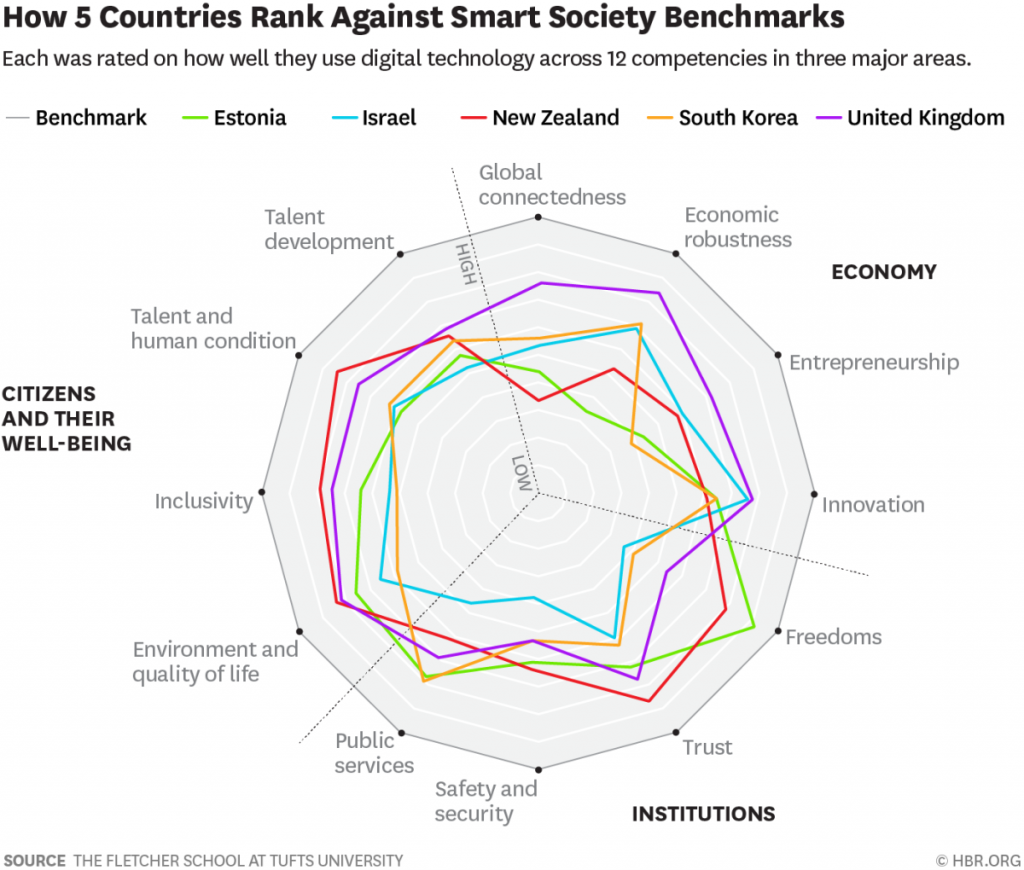The “Smart Society” of the Future Doesn’t Look Like Science Fiction
by Bhaskar Chakravorti and Ravi Shankar Chaturvedi
What is a “smart” society? While flights of imagination from science-fiction writers, filmmakers, and techno-futurists involve things like flying cars and teleportation, in practice smart technology is making inroads in a piecemeal fashion, often in rather banal circumstances. In Chicago, for example, predictive analytics is improving health inspections schedules in restaurants, while in Boston city officials are collaborating with Waze, the traffic navigation app company, combining its data with inputs from street cameras and sensors to improve road conditions across the city. A city-state such as Singapore has a more holistic idea of a “smart nation,” where the vision includes initiatives from self-driving vehicles to cashless and contactless payments, robotics and assistive technologies, data-empowered urban environments, and technology-enabled homes.
More broadly, we might define a smart society as one where digital technology, thoughtfully deployed by governments, can improve on three broad outcomes: the well-being of citizens, the strength of the economy, and the effectiveness of institutions.

The potential for technologies to enable smart societies is rising. For example, internet-of-things sensor applications are envisioned to deliver a wide range of services, from smart water to industrial controls to e-health. The market for smart technologies is predicted to be worth up to $1.6 trillion by 2020, and $3.5 trillion by 2026. Surely, given the size of the opportunity, increasing interest among governments and policy makers, and the explosion of relevant technologies, we can start to understand what smart societies are and establish standards and ideals to aim for.
